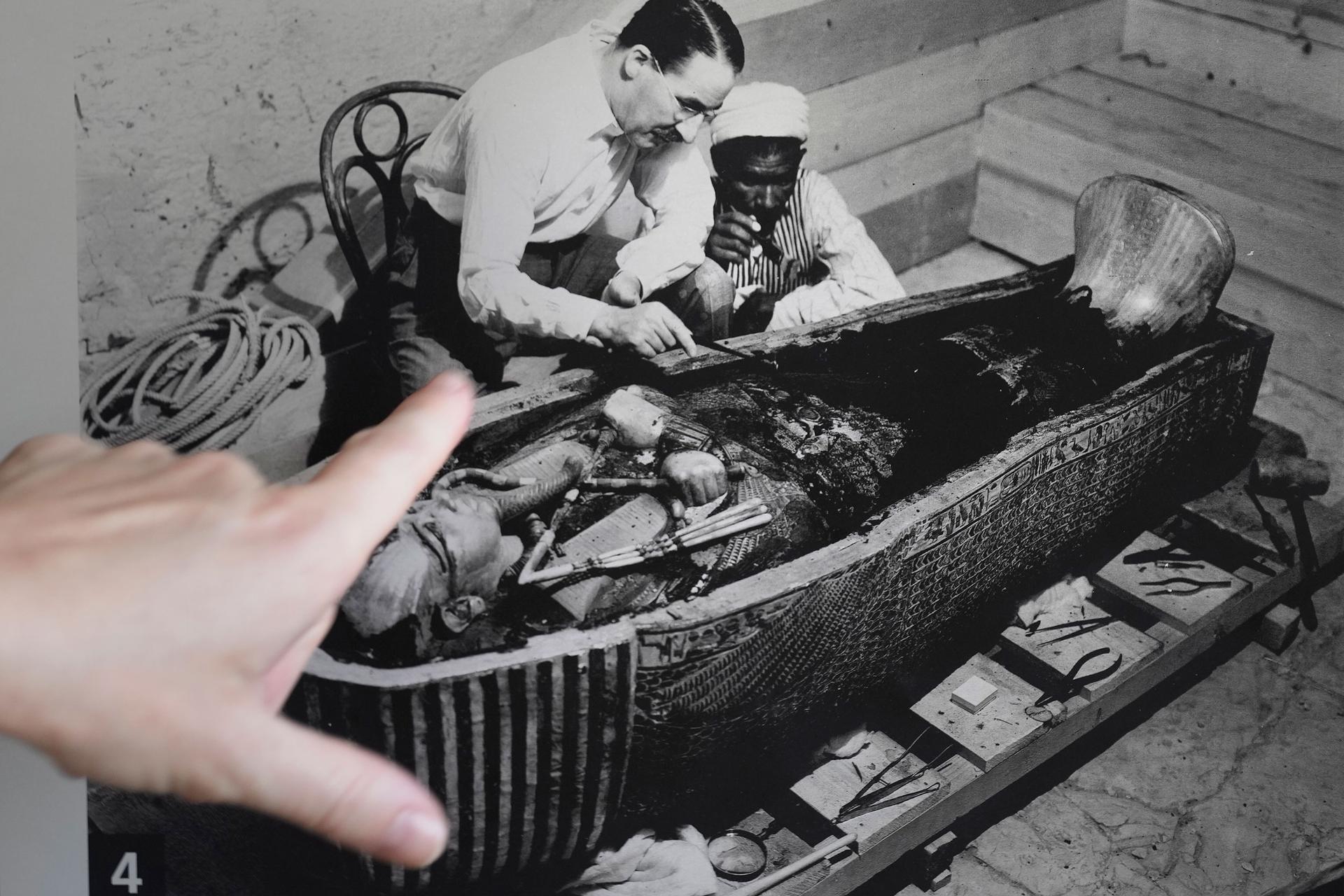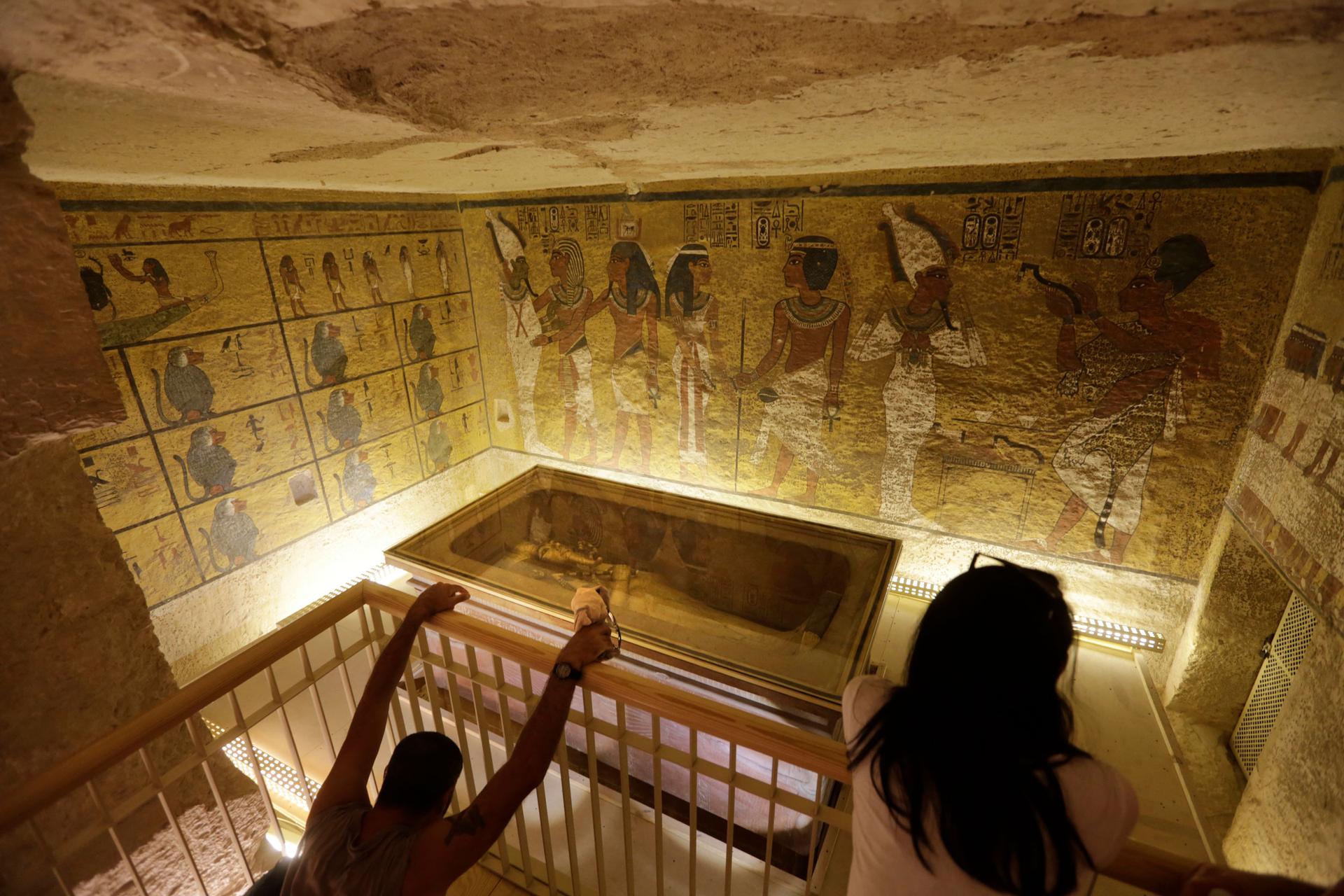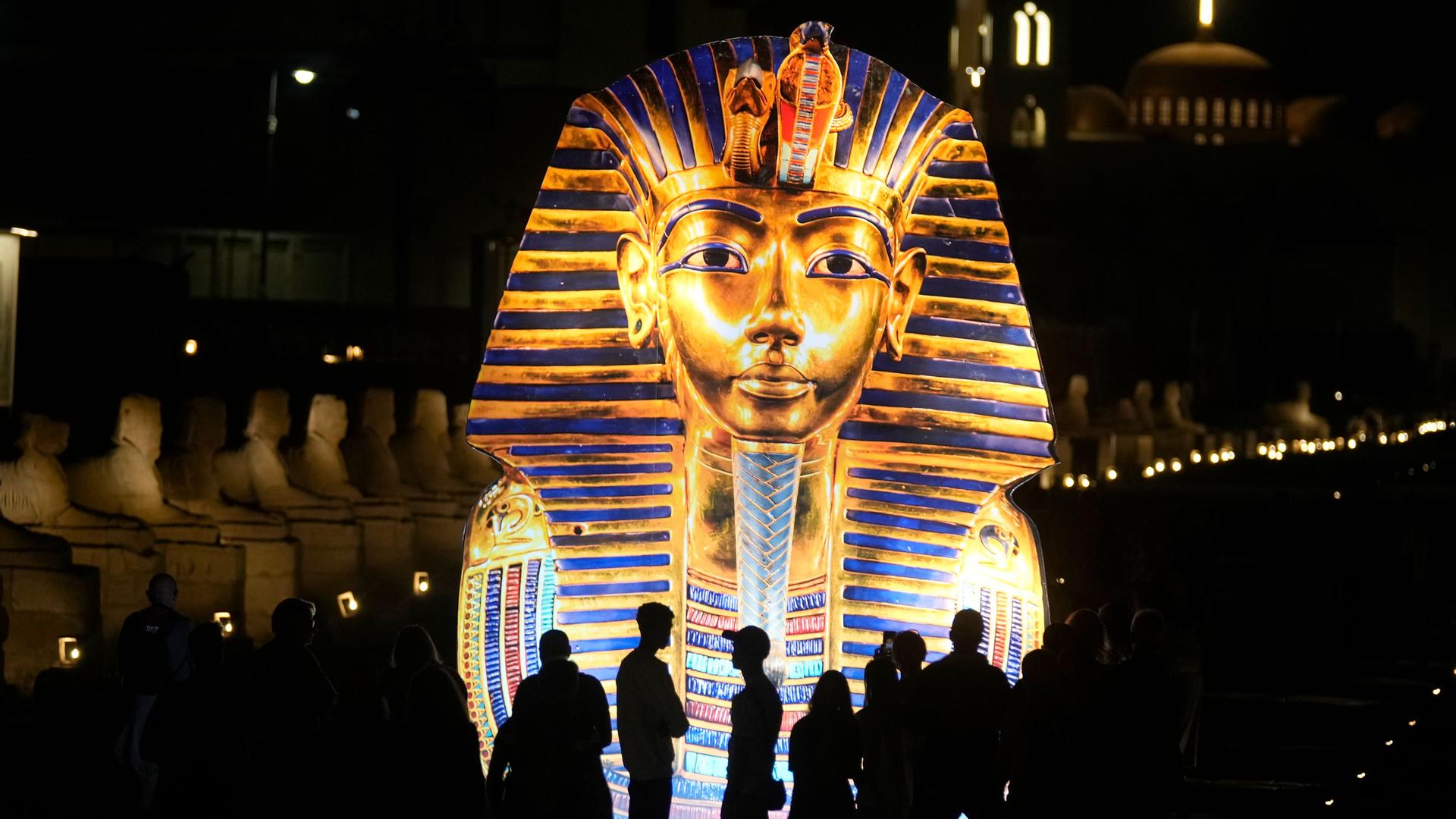Nov. 4 marked 100 years since the discovery of King Tutankhamun’s tomb in Egypt. The discovery is credited to British archeologist Howard Carter and his workers who came across it.
Weeks after finding it, Carter peered in to find it full of treasures. News reports went out across the globe. The world had been riveted by tomb robberies, destruction and the ravages of more than three millennia. So, finding a tomb undisturbed was a rare occurrence.
Discoveries like King Tut’s tomb just didn’t happen. Now, a century later, celebrations are underway in Egypt to mark the moment.
“This was an amazing discovery on so many levels,” said Peter Der Manuelian, an Egyptology professor at Harvard University and author of the book “Walking Among Pharaohs.” Manuelian said there were about 6,000 objects found and that it was very unusual to see the tomb so intact from any period in ancient Egypt.
“That set the world on fire, archaeologically speaking. And then it’s also a fantastic discovery for the modern Egyptian history going on in the early 20th century. A whole different chapter in Tutankhamun’s life,” he told The World.

Tutankhamun lived in the 18th dynasty of Egypt’s New Kingdom (1550-1295 BC) at a very tumultuous time, Manuellian explained. His father, Akhenaten, ushered in a new religion focused on the sun. He only lasted about 17 years. Tutankhamun eventually took the throne as a child and served as the figurehead for “a return to orthodoxy,” Manuelian said. He only stayed on the throne for about a decade — and his death remains a mystery.

The tomb was discovered in 1922 when private individuals were still funding excavations. Carter was at the apex of all of the news about the discovery. But Egyptians are now much more in control of their own antiquities and decision-making around them, Manuelian said.
“Over the decades, as we’ve learned to take a closer look at these objects, we can sort of read between the lines of the hieroglyphs, so to speak, and see which objects have been repurposed, where names have been changed or re-inscribed. And so, there is history to be gleaned from these objects,” he said.
